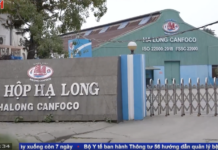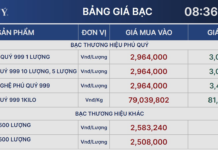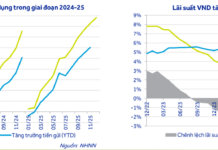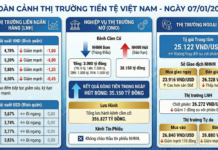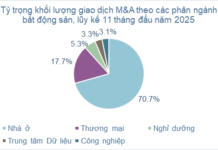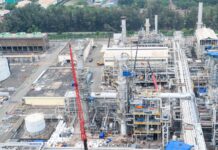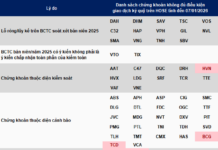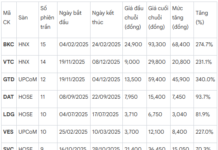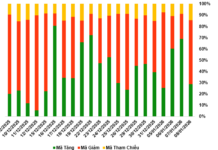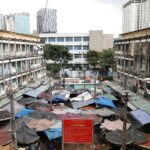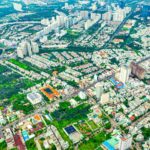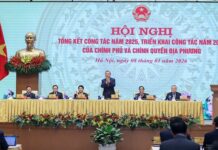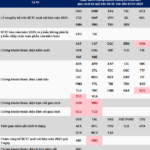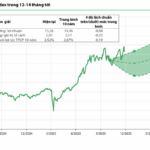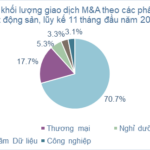The draft amendment to Resolution 98 focuses on addressing five major bottlenecks hindering Ho Chi Minh City’s development.
First, the bottleneck concerning strategic investors and projects. This draft allows the city to directly designate and select strategic investors if only one meets the criteria, while expanding eligible sectors for investment calls, significantly reducing implementation time.
Flexibility in applying urban planning, using either the general plan or plans sponsored by businesses, is another critical measure. It resolves the issue of projects being stalled due to unapproved detailed plans.
These adjustments not only eliminate investment-hindering procedures but also enhance HCMC’s appeal to strategic investors and major corporations with strong financial and technological capabilities.
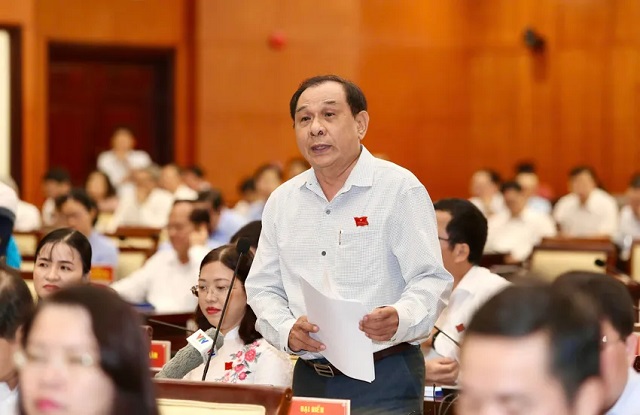
Dr. Tran Quang Thang, Director of HCMC Institute of Economics and Management.
|
Second, the bottleneck of stalled investment projects wasting resources. Many projects face delays due to land acquisition, compensation issues, or bottlenecks in BT contract payments when land funds are insufficient. The draft introduces two key mechanisms: expanding land funds for BT payments and allowing contract addendums to redefine payment land; while broadening the scope of projects eligible for land recovery preparation mechanisms.
These changes unlock transitional BT projects, expedite land clearance for critical infrastructure, freeing up frozen resources and accelerating HCMC’s investment progress.
Third, the current state of overlapping state management, with some agencies lacking decisiveness, resulting in inefficiency.
The draft proposes policy adjustments to reduce redundancy and grant local authorities greater autonomy in decisions within their jurisdiction.
Decentralization is paired with robust oversight to ensure transparency, prevent abuse, and foster proactive innovation in socio-economic development tasks.
Fourth, supporting businesses, especially SMEs, micro-enterprises, and households, in accessing capital, premises, and skilled labor. Initiatives include improving credit mechanisms, land leasing, vocational training, tax incentives, legal support, and promoting innovation and digital transformation. Encouraging R&D investment, new technologies, and building startup ecosystems connecting domestic and foreign enterprises.
Fifth, the lack of a robust framework for regional development and free trade. HCMC and Southeast Region’s logistics, ports, and international trade lack a strong legal framework to leverage regional advantages.
The Free Trade Zone (FTZ) mechanism in this draft is a breakthrough, creating frameworks for emerging markets like carbon credits, logistics, international trade, and R&D. FTZs will help HCMC and surrounding areas expand markets, attract strategic investment, enhance international connectivity, reduce domestic market dependence, and solidify the city’s economic leadership.
Overall, if approved, these policies will provide institutional momentum for HCMC’s strategic breakthroughs and foster a modern, dynamic urban economy with smart, sustainable development, improved governance, and citizen services.
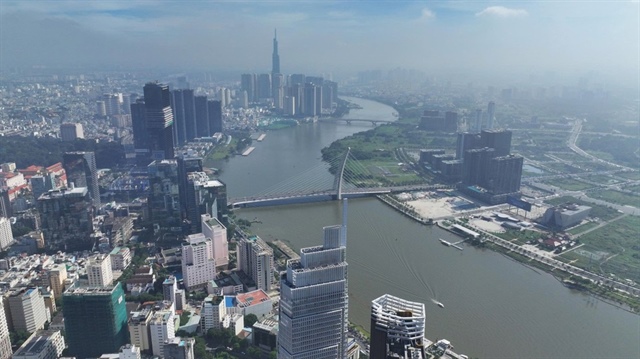 Free Trade Zones will serve as HCMC’s “passport” to global trade networks, attracting high-quality foreign investment. Photo: NHU NGOC |
With these mechanisms, HCMC will no longer need approvals for strategic projects, enabling rapid execution of mega-projects in infrastructure, economy, and social sectors. The city can create its own development space, fitting its special status.
HCMC can enter the global arena as FTZs act as a “passport” to international trade, attracting top-tier foreign investment. This will activate new growth drivers like green technology, digital transformation, international finance, and innovation hubs, shifting from traditional models to knowledge-based and circular economies.
Additionally, urban spaces will transition from “sprawl” to “efficient compression,” saving land and improving infrastructure with smart transportation. Developing green, zero-emission, energy-efficient cities aligned with low-carbon goals. Reducing congestion, pollution, and enhancing sustainable living standards.
In essence, the amended Resolution 98 policies will not only remove barriers and unlock resources but also drive institutional, economic, and social momentum for HCMC’s unique breakthrough path.
DR. TRAN QUANG THANG, Director of HCMC Institute of Economics and Management
– 06:20 18/11/2025
Ho Chi Minh City’s Hottest Residential Hub: Spotlight on Vinhomes, Masterise, and Gamuda’s Prime Projects
The eastern regions of Thu Duc, former Districts 2 and 9, along with the former District 7 and Nha Be, have emerged as the hottest spots in the apartment market.
Phat Dat Acquires Dai Quang Minh’s 239 Cach Mang Thang 8 Project
Phat Dat Real Estate Development Corporation (HOSE: PDR) has announced an extraordinary disclosure regarding the acquisition of all shares held by Dai Quang Minh Real Estate Investment Corporation in AKYN Investment Trading Service Corporation. This strategic move is aimed at developing a VND 5.5 trillion apartment project.


